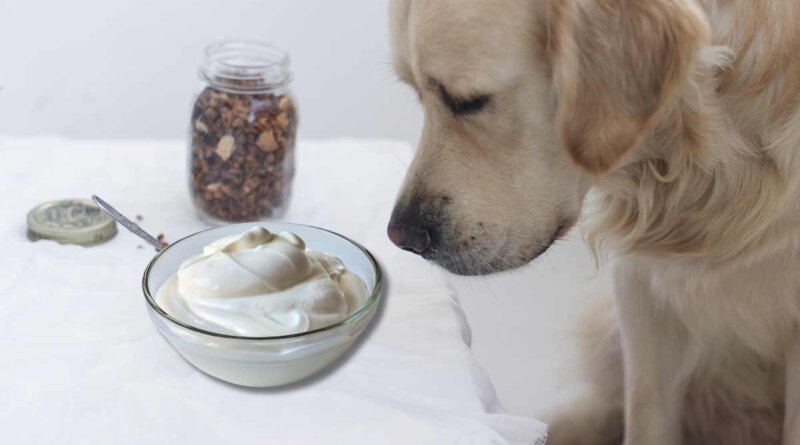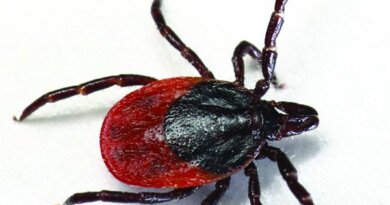Can Dogs Eat Yogurt? Is Yogurt Safe For Dogs?

Dog owners often question what human foods their pets can eat safely. These arise from the many times pets try to sneak a bite or stray crumbs of what we’re snacking on. One common food found in many households is yogurt. Can dogs eat yogurt? Yes, they can. Yogurt is safe, but not every kind is appropriate for your dog to eat. While yogurt can be safe in moderation, there’s more you need to know before sharing that breakfast bowl or smoothie with your pup.
Can Dogs Eat Yogurt?
Dogs can eat yogurt as long as it’s plain and unsweetened with no added sugars or flavorings. This is especially important, as many human foods may contain artificial sweeteners like xylitol, which is extremely toxic to canines. While safe in moderation, it shouldn’t make up more than 10% of your pup’s daily diet, just like any other treat.
Some dogs, however, don’t handle dairy products well. Yogurt that’s high in lactose could cause diarrhea, vomiting, or gas. Stick to small quantities, and do not feed it to your dog every day.
Is Yogurt Safe For Dogs?
Plain yogurt is safe for dogs and has several nutritional benefits. It’s full of calcium and protein, and many yogurt brands contain probiotics, which help maintain gut health. The immune system depends on a healthy gut. Probiotics are also helpful in preventing dental disease (but don’t forget to brush your pup’s teeth).
Is Yogurt Good For Dogs?
If it’s the proper type, low or non-fat, and sugar and sweetener-free, yogurt can be beneficial in small quantities. There are several positive ways it benefits canines, including:
- Providing B vitamins that work to balance cellular health and metabolism.
- Supporting brain health and function.
- Helping in the absorption of nutrients.
- Supporting a healthy immune system.
- Providing healthy protein.
- Many yogurts contain probiotics that help maintain a healthy gut microbiome.
Can Yogurt Be Bad For Dogs?
Many dogs become lactose intolerant once weaned off of their mother’s milk, so large amounts of dairy aren’t a good idea. Because of this, you must always try a small amount first and then observe your pup to see if has any adverse or uncomfortable reactions.
Pups with dairy intolerance may experience constipation, diarrhea, gas, stomach pain, and nausea after eating. Lack of appetite, itching, vomiting, and weight loss are additional symptoms of lactose intolerance or a poor reaction to dairy. Learn about how a dog allergy test may be able to tell you if your pup is lactose intolerant.
In addition to unsweetened yogurt, look for low-fat or non-fat plain varieties. Full-fat yogurts have a high number of calories which your pup doesn’t need. Along with high sugar content, this can lead to a dog being overweight, obese, and developing issues like diabetes.
Can Dogs Eat Greek Yogurt?
Yes, they can eat plain unsweetened Greek yogurt. Low or non-fat is best to avoid those extra calories. Greek is a better choice than regular yogurt, as it has less lactose, making it easier to digest.
Adding fruit is okay if the fruit is dog-safe and fresh, with no other ingredients. Some owners add blueberries, strawberries, cantaloupe, or other dog-friendly fruits. You can even mix and freeze a nice smoothie for your pup or make your own frozen dog treats with yogurt. This makes an excellent treat filler or fresh snack on a hot day.
Canines are also able to ingest kefir, a drinkable dairy product, safely. Kefir is easier to digest than regular dairy products.
How Much Yogurt Can I Give My Dog?
How much is best to feed a dog depends on the pup’s size and health and the type of product. No or low fat is best. If it’s full-fat, just one spoonful is enough.
Larger breeds can eat more. One spoonful for small pups, two spoonfuls for medium-sized, and three spoonfuls for larger dogs is a good general rule. Remember not to add too much or to add it to your pup’s meals every day unless directed by your veterinarian.
Avoid yogurts made from dairy substitutes like cashew or soy milk. Many dairy-free alternatives contain hard-to-digest ingredients or added elements that canines should not have. Avoid frozen varieties unless they are made specifically for canine consumption.
Best Yogurt For Dogs
Here are our top picks for the best yogurt for dogs. You can mix it with your pup’s food, fruit, rice or veggies, or feed it by itself.
Stonyfield Organic 100% Plain Greek Whole Milk

Stonyfield Organic 100% Plain Greek Whole Milk is one top option. It has only cultured pasteurized grass-fed organic whole milk and with live active cultures—no chemicals, additives, or sweeteners.
For a reduced-fat option, you can look for yogurts made with skim milk.
Wallaby Organic Aussie Greek Style Lowfat

Wallaby Organic Aussie Greek Style Lowfat is an excellent low-fat pick. The ingredient list includes only cultured pasteurized grass-fed organic whole milk. It uses 1.5% milk fat.
365 by Whole Foods Market Organic Greek Non-Fat

365 by Whole Foods Market Organic Greek Non-Fat is made from cultured pasteurized organic non-fat milk. It contains live and active cultures of S. Thermophilus, L. Bulgaricus, L. Acidophilus, Bifidus, and L. Paracasei.
Because dogs like yogurt so much, there are several options for dog yogurt products and yogurt-based dog treats. These chews are a popular pick for all pups, from puppies to seniors.
Himalayan Pet Supply Yogurt Sticks Peanut Butter Flavor

Himalayan Pet Supply Yogurt Sticks Peanut Butter Flavor are soft-density chews suitable for pups of all ages. These treats include yogurt powder, peanut butter, coconut powder, potato starch, prebiotics, and probiotics. These are health-conscious chews developed to support gut health. They contain no artificial flavors, preservatives, corn, grain, soy, lactose, or gluten.
While this food is safe for your pup in small servings, not every food is safe. Not to mention the many inedible and hazardous chemicals and household items pets come across daily. Even just eating a stick outside or a bit of plastic inside can cause problems. Your pup will surely encounter unexpected hazards and health concerns as they age. Pet insurance can decrease financial worry so you can focus on your pet’s health and recovery should an emergency arise.
Wondering What To Put In Your Dog’s Bowl?
Providing canines with top nutrition throughout every stage and age of life is a priority for pet owners. Paying attention to a pet’s nutritional needs as they age is essential. Also, breed and size are factors that must be considered. Smaller breeds need more nutrient-dense kibble, while larger breeds may need more fat and protein to support growth and weight.
Most dogs enjoy a combination of crunchy kibbles and softer wet food. The good news is there are plenty of options to pick from, along with fresh human-grade meals. If you have any concerns about your pet’s specific nutritional needs, it is best to discuss these with your veterinarian.
Why Trust Canine Journal?
Danielle is a pet owner with over 30 years of experience. She has worked as a professional researcher for many years. She is dedicated to providing the best research and information to help pet owners. She spends countless hours researching the latest pet care, health, nutrition, and training developments. Danielle has tested and researched over 100 brands of dog food and counting. She works alongside a professional and experienced team to bring the best, most accurate, and up-to-date information to our readers.
Tagged With: Food Safety




